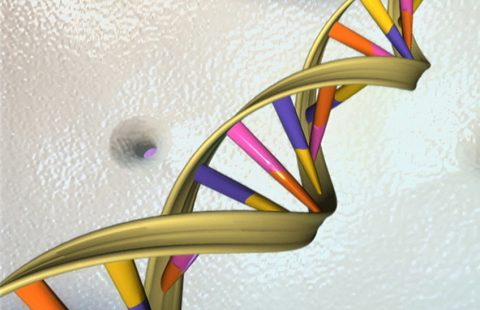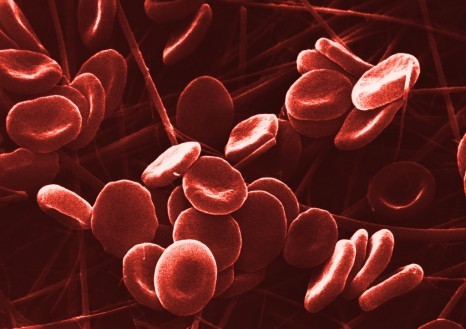
©Fotolia
A study coordinated by Dr. Boris Hansel and Prof. Ronan Roussel, from the Diabetes-Endocrinology and Nutrition Department at Hôpital Bichat – Claude-Bernard, AP-HP and the Cordeliers Research Center (Inserm/Pierre and Marie Curie University, Paris Diderot, Paris Descartes University) shows that online nutritional coaching -an automated nutritional support program- improves dietary habits and glycemic control in patients with type 2 diabetes and abdominal obesity.
These results were published in the Journal of Medical Internet Research, JMIR on November 8, 2017.
Several nutritional coaching offers (personal support) have appeared on the internet in recent years, particularly in France. Whether a passing craze or a genuine revolution in nutritional management methods, online coaching is emerging as part of the treatment of chronic disorders. It is now being tested in certain hospitals, such as Hôpital Bichat-Claude Bernard, AP-HP, in order to achieve online support practically comparable to face-to-face contact.
Eating a balanced diet and taking appropriate regular physical exercise are the basis for treating type 2 diabetes and excess weight. However, for many diabetics, these recommendations are difficult to apply in the long term due to the lack of specific guidance in determining where efforts should be focused. While online support tools have been shown, in certain cases, to be effective, no French studies have tested online nutritional coaching to date, particularly for diabetes and/or abdominal obesity, in terms of reducing calorie intake and increasing physical exercise, resulting in weight loss similar to that achieved through hospital follow-up.
The research team tested a fully automated online coaching tool: the “Accompagnement Nutritionnel de l’Obésité et du Diabète par E-coaching – ANODE” [Diabetes and Obesity Nutritional Support Coaching] program developed by MXS. This program combines an electronic nutritional assessment and patient support in terms of diet and physical exercise. The researchers analyzed the utility of this program in patients with type 2 diabetes in a bicenter randomized trial.
The ANODE study was opened to 120 male or female volunteers, aged 18 to 75 years, with type 2 diabetes and overweight, particularly in the abdominal area, and having internet access.
Two groups were created: an investigational group benefiting from the ANODE automated online coaching program, and a control group receiving standard nutrition advice over a four month period.
The researchers monitored the changes in a diet quality score out of 100 (Diet Quality Index-International, calculated with a dietary diary over 3 days) between Study 1 (D-20 to D-2) and Study 2 (D100 to D118). At the same time, they measured the changes in “HbA1c or glycosylated hemoglobin”, i.e., hemoglobin which is chemically bound to glucose, cardiovascular risk factors, and physical aptitude (direct measurement of VO2max).
The two groups were comparable at baseline: 67% of females aged 57 years, with a BMI of 33 and diet index of 53.4/100 on average.
The results show that the diet index increased significantly in the online coaching group (+5.25 points) relative to the control group (-1.83) on average. The changes in food intake were more favorable in this group, with a reduction in fat, saturated fat, sodium and “empty calories” (calories provided by low-nutrient-dense foods).
Patient weight, waist measurement, and HbA1c also showed a more favorable reduction with this program. At least 5% weight loss is observed in 26% and 4% of subjects in the online coaching and control groups, respectively. The changes in plasma lipids and blood pressure are similar between the groups, and VO2max showed an identical increase in the two groups.
In conclusion, the online coaching program improved nutritional habits and glycemic control in patients with type 2 diabetes, in 16 weeks. It achieved its objective by significantly reducing weight and waist measurement. This program, which is adapted to patients, also has the advantage of being inexpensive as it is fully automated. These results thus encourage the development of online nutritional coaching in the follow-up of patients with type 2 diabetes.
The team is expected to initiate a national study on a larger scale next spring, over a one-year period, with an optimized connected health program. From January 2018, the AP-HP/Paris-Diderot University research team will be offering training in connected health, as part of the university diploma “Multidisciplinary practical training in connected health”.

